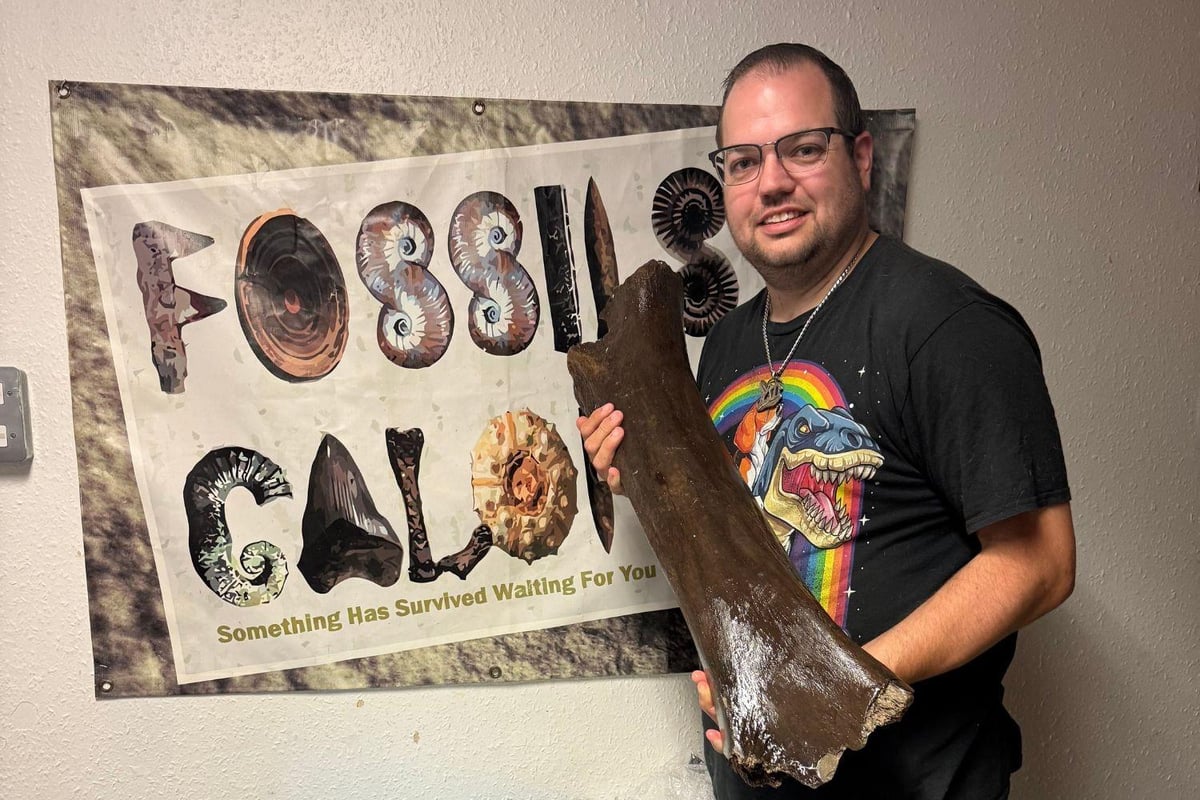Science
Rare 250,000-Year-Old Fossil Bone Found in Devon Under Review

A fossilized bone dating back approximately 250,000 years has been discovered in Devon, England, and is now under examination by a palaeontologist based in Peterborough. This rare find is generating excitement among researchers due to its age and the potential insights it may provide into the prehistoric environment of the region.
The bone was unearthed during routine geological surveys in the English Channel. Initial assessments suggest it could belong to a species that inhabited the area during the late Pleistocene epoch, a time characterized by significant climatic changes that influenced the evolution of various species on the British Isles.
Significance of the Discovery
Palaeontologists are particularly interested in this specimen due to its rarity. Fossils from this period are not commonly found in the UK, making this discovery an exceptional addition to the existing fossil record. The bone’s preservation is expected to offer valuable information regarding the biodiversity and ecological conditions of ancient Britain.
Dr. Emily Thompson, the palaeontologist examining the bone, commented on the find: “This could be a significant piece of evidence that helps us understand more about the species that roamed this area thousands of years ago. It’s crucial for piecing together the evolutionary history of our environment.”
Next Steps in Research
Further analysis will involve detailed examinations using advanced imaging technology and comparative studies with other fossil specimens. The process will help ascertain the bone’s exact species origin and its implications for understanding prehistoric life in the region.
As research progresses, there is hope that this discovery will not only enhance academic knowledge but also engage the public’s interest in palaeontology and the importance of fossil preservation. Such findings serve as reminders of the rich history beneath our feet and the ongoing story of life on Earth.
Authorities and local historians are also keen to promote this discovery as a means to encourage tourism and education about the geological heritage of Devon. As the examination continues, updates will be shared on the significance of this fossil and the insights it may provide into our planet’s history.
-

 World2 weeks ago
World2 weeks agoCoronation Street’s Shocking Murder Twist Reveals Family Secrets
-

 Entertainment1 week ago
Entertainment1 week agoAndrew Pierce Confirms Departure from ITV’s Good Morning Britain
-

 Entertainment5 months ago
Entertainment5 months agoKate Garraway Sells £2 Million Home Amid Financial Struggles
-

 Entertainment4 months ago
Entertainment4 months agoAnn Ming Reflects on ITV’s ‘I Fought the Law’ Drama
-

 Entertainment1 month ago
Entertainment1 month agoCoronation Street Fans React as Todd Faces Heartbreaking Choice
-

 Health4 months ago
Health4 months agoKatie Price Faces New Health Concerns After Cancer Symptoms Resurface
-

 World1 month ago
World1 month agoBailey Announces Heartbreaking Split from Rebecca After Reunion
-

 Entertainment2 weeks ago
Entertainment2 weeks agoTwo Stars Evicted from I’m A Celebrity Just Days Before Finale
-

 World2 weeks ago
World2 weeks agoKevin Sinfield Exceeds Fundraising Goal Ahead of Final Marathons
-

 Entertainment4 months ago
Entertainment4 months agoCoronation Street’s Carl Webster Faces Trouble with New Affairs
-

 Entertainment4 months ago
Entertainment4 months agoWhere is Tinder Swindler Simon Leviev? Latest Updates Revealed
-

 Entertainment5 months ago
Entertainment5 months agoMarkiplier Addresses AI Controversy During Livestream Response




















